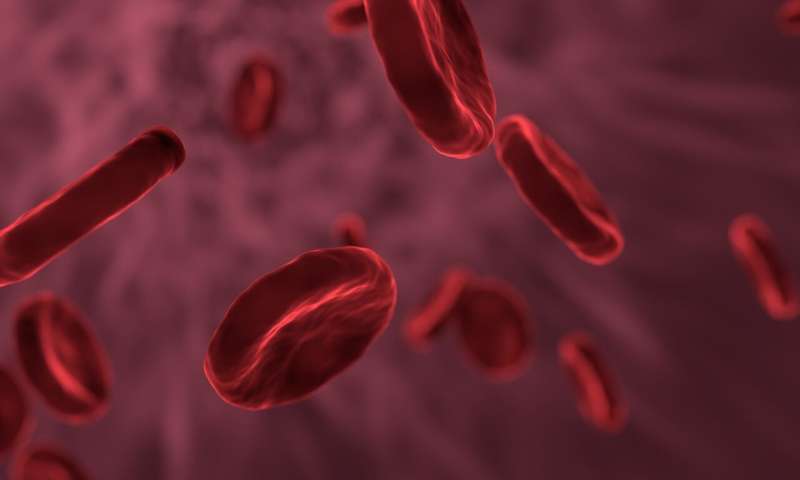Growing new blood vessels could provide new treatment for recovering movement

Many health conditions—ranging from disease of particular organs such as heart and lungs, widespread metabolic issues such as diabetes, or following trauma such as spinal cord injury—cause difficulties with movement. This can severely affect quality of life and new research published today in the Journal of Physiology highlights the link between loss of the smallest blood vessels in muscle and difficulties moving and exercising. Understanding this link opens up the possibility of aiding recovery by growing more blood vessels in your muscles.
When we are physically active, our heart and lungs increase the amount of oxygen in our blood that is delivered to our working muscles. Our capillaries, the smallest blood vessels, are the gateway between fuel supplied by the circulating blood and the demand generated within muscle cells. Therefore, in order for your muscles function properly, the capillaries need to be in good shape. Unfortunately, the consequence of many heath conditions is that the muscle loses capillaries and therefore movement becomes difficult.
Heavy smokers can suffer from "smoker's leg," which is where arteries narrow and become blocked. An existing treatment for this is to widen blood vessels to improve circulation. However, this new research shows that more blood flow might not be the solution, and instead increasing the number of small blood vessels, i.e. capillaries, might be more helpful for recovering movement.
The researchers used a rat model of heart disease to study the effect of restricting the number of working capillaries in muscle on movement. Using an animal model was key because in humans you wouldn't be able to look at a change in just one consequence of the disease, as there are usually a number of problems evident at the same time.
Stuart Egginton from the University of Leeds, senior author on the study, said:
"By studying muscle we have isolated one of the complications found in many serious diseases, and found that increasing the number of small blood vessels is a new treatment option alongside the more traditional approach of widening large vessels. This research could help treat people suffering from difficulty moving, which is one of the most debilitating effects of heart disease or diabetes."
More information: Peter G Tickle et al. Impaired skeletal muscle performance as a consequence of random functional capillary rarefaction can be restored with overload‐dependent angiogenesis, The Journal of Physiology (2020). DOI: 10.1113/JP278975





















